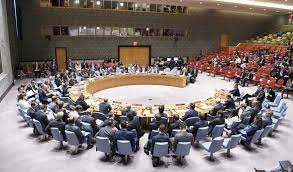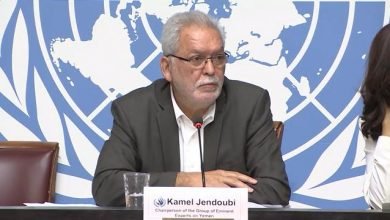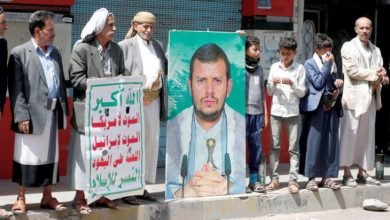SECURITY COUNCIL August 2021 Monthly Forecast of Yemen

SMA NEWS – NEW YORK
Expected Council Action for Yemen
In August, the Council is expected to hold its monthly briefing on Yemen with a representative of the Department of Political and Peacebuilding Affairs and Under-Secretary-General for Humanitarian Affairs Martin Griffiths. General Abhijit Guha, head of the UN Mission to support the Hodeidah Agreement (UNMHA) and chair of the Redeployment Coordination Committee (RCC), is expected to brief in consultations. Also in August, the Yemen 2140 Sanctions Committee is expected to meet with the Yemen Panel of Experts to discuss the panel’s mid-term update.
Key Recent Developments
Fighting continued in Yemen during July amid stalled ceasefire negotiations. The Houthi rebel group offensive to take Marib governorate from the Yemeni government remains halted outside of Marib City. In early July, forces affiliated with the government launched an operation against the Houthis to re-take the central al-Bayda governorate. However, much of the government’s initial gains were soon reversed.
Tensions have been escalating between the government and the separatist Southern Transitional Council (STC), undermining the power-sharing accord known as the Riyadh Agreement that Saudi Arabia brokered in 2019 following fighting between these nominal allies, both of whom oppose the Houthis. In mid-March, protesters stormed Aden’s Ma’shiq palace, where Prime Minister Maeen Abdulmalik Saeed had been headquartered since Yemen’s unity government, formed in accordance with the Riyadh Agreement, returned to Aden, Yemen’s interim capital, in late December 2020. Following this incident, Maeen and some members of his cabinet left Aden and have since been based in Riyadh. On 26 June, the STC announced that it was suspending communication with the other parties to the Riyadh Agreement following clashes the previous day, when the government prevented STC supporters from protesting in Shabwa governorate.
Saudi Arabia oversaw a meeting of the two sides in Riyadh on 1 July. In a statement, Saudi Arabia announced that the two parties agreed to end all forms of escalation and called for the government and STC to avoid conflict and implement the Riyadh Agreement. Tensions remained high, however, as the government and STC amassed forces and clashed in Abyan governorate soon after the meeting.
In early July, the value of Yemen’s currency fell below 1,000 Yemeni riyals to one US dollar for the first time in areas controlled by the government. For Yemen, which imports most of its food and other critical goods, the currency crisis has been a major driver of the country’s humanitarian crisis, including heightening the risk of famine as Yemenis struggle to afford food. Meanwhile, the riyal was trading at about 600 riyals to the dollar in Houthi-controlled areas.
On 14 July, the Council adopted resolution 2586, renewing the mandate of UNMHA until 15 July 2022. The resolution also reiterated the Council’s call for the parties to work towards stabilising Hodeidah, the strategic Red Sea port city, including through cooperation in the RCC, and expressed support for UNMHA’s efforts to reactivate the RCC and its joint mechanisms to implement the December 2019 Hodeidah agreement that established a ceasefire in Hodeidah city and governorate. It further demanded an end to the obstruction of movement of UNMHA personnel in Hodeidah governorate and expressed support for UNMHA’s efforts to meet the access needs of all parties and to be equally responsive to their requests.
Following the adoption of resolution 2586, Council members held consultations on Yemen with Under-Secretary-General for Political and Peacebuilding Affairs Rosemary DiCarlo, Acting Under-Secretary-General for Humanitarian Affairs Ramesh Rajasingham, and General Guha. The UN is expected soon to announce a new UN Special Envoy to Yemen to succeed Martin Griffiths, who started at OCHA in July, but at the time of writing, it had yet to do so.
Key Issues and Options
The key issues continue to be the need to achieve a ceasefire and to resume a peace process. Despite intensified negotiations this year, ceasefire talks have stalled, with the Houthis taking the position that Sana’a airport should be opened and restrictions on Hodeidah’s ports lifted before they will discuss a ceasefire. The government has sought to agree on and implement these measures together as a package, which is also in line with UN proposals to date. Sustaining the Saudi Arabia-brokered Riyadh Agreement is another important issue, critical for preventing the conflict’s further deterioration. A related issue is a new UN envoy developing his or her ideas or vision for a political process that the Council can back.
Yemen continues to be the world’s worst humanitarian crisis, with 20.7 million people in need of some form of humanitarian assistance or protection. Key issues related to the humanitarian crisis include the protection of civilians, humanitarian access, funding for the aid operation, and support for the economy. The UN has repeatedly warned about the potential for the Houthis’ Marib offensive to worsen the humanitarian crisis if it triggers a new wave of mass displacement as there are over one million internally displaced persons in the governorate who have fled from other conflict areas.
Another key issue is the threat posed by the FSO Safer oil tanker moored in the Red Sea off the Houthi-held Ras Isa oil terminal. The UN has been negotiating unsuccessfully with the Houthis to allow a technical team to conduct an assessment mission and make initial repairs to the decrepit ship, which risks causing an environmental catastrophe in the event of an oil spill or fire.
Council members could issue a press statement, as they often do after meetings on Yemen, to call for:
- a ceasefire;
- measures to address the humanitarian crisis, such as for Yemen’s partners to inject foreign reserves into the Central Bank;
- the continued implementation of the Riyadh Agreement; and
- the Houthis to cooperate with the UN to avert a crisis with the Safer oil tanker.
Council and Wider Dynamics
Council members are, for the most part, united on Yemen. They support UN-led mediation efforts and share concerns about the humanitarian situation and the environmental threat posed by the Safer oil tanker. The US lent new momentum earlier this year to UN efforts to negotiate a ceasefire after it appointed a US Special Envoy for Yemen, Timothy Lenderking, in February. European members and the US tend to be more critical of Houthi obstructionism, while Russia is more cautious in singling out the Houthis—a dynamic that has sometimes played out this year during negotiations on Council products.
Outside the Council, Saudi Arabia announced a ceasefire proposal in March along the lines of the UN’s plan, and Oman has reportedly continued its efforts to broker a ceasefire since taking on a stronger mediation role in June.
The UK is the penholder on Yemen. Ambassador I. Rhonda King (Saint Vincent and the Grenadines) chairs the 2140 Sanctions Committee.








